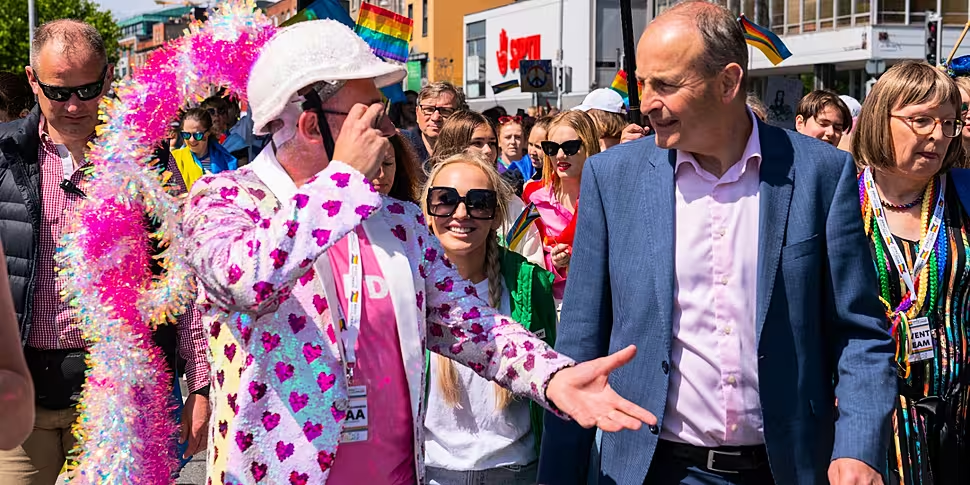The annual Dublin Pride parade kicked off at midday today, attracting thousands to the city centre.
Today is a celebration of all LGBTQ+ people and their culture - this afternoon's parade is the first since the beginning of the Covid-19 pandemic.
Celebrations began outside the Garden of Remembrance, before the party crossed the Liffey on its way to Merrion Square.
Political leaders were also marching, including Taoiseach Micheál Martin and Tánaiste Leo Varadkar - the first dressed in a sensible suit, while the later wore his favourite red t-shirt.
So too was the newly elected Mayor of South Dublin, Cllr Emma Murphy, who made history this week when she became the nation’s first out LGBT woman to serve as a local authority mayor:
“The sentiments of me being the first female LGBT local authority Mayor is not lost on me,” she said.
“It’s something that I am very humbled by and hope that it opens more doors for women and members of the LGBT community to come forward and get involved and engaged in political life.”
However, it was not all about smiles and cheering; famously Pride has its roots in protest and for many attendees the day’s events are about more than just having a good time:
“It [Pride] is so important right now,” Sam Blanckensee, incoming chair of the Transgender Equality Network, said.
“Especially right now when we really feel that trans people are being villainised in the media and we’re really not getting… healthcare and we need to see progress on legislation.
“It’s so important that we’re here, we’re celebrated and we’re here with joy rather than only ever talking about the difficulties.”
The first Pride parade in Ireland took place in Dublin in 1973 when 10 people marked on the Department of Justice to protest the ban on male homosexuality.
A decade later in 1983, hundreds marched under a cloud of fury and fear after the killers of gay man Declan Flynn were given only suspended sentences. “It could be interpreted as a license to kill,” Senator David Norris said at the time.
The Oireachtas went on to decriminalise gay sex in 1993 and gay marriage by legalised by a popular vote in 2015.













